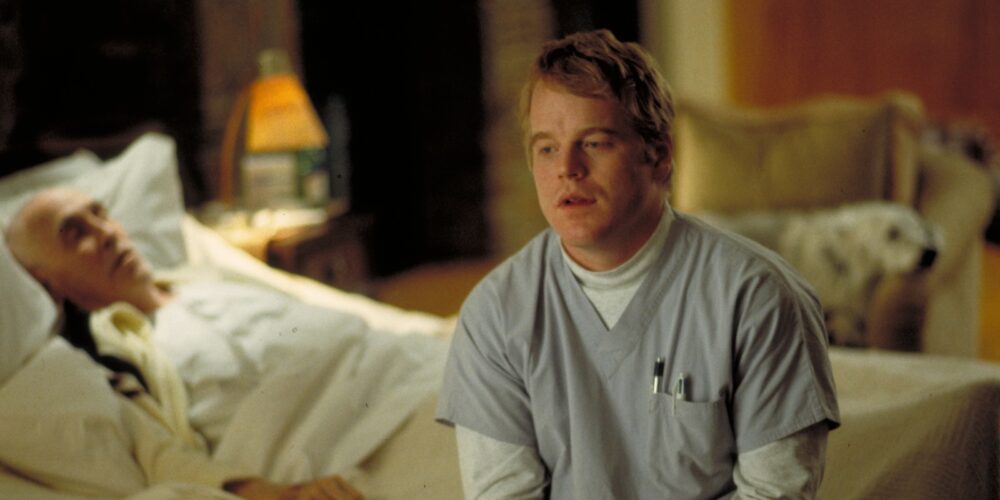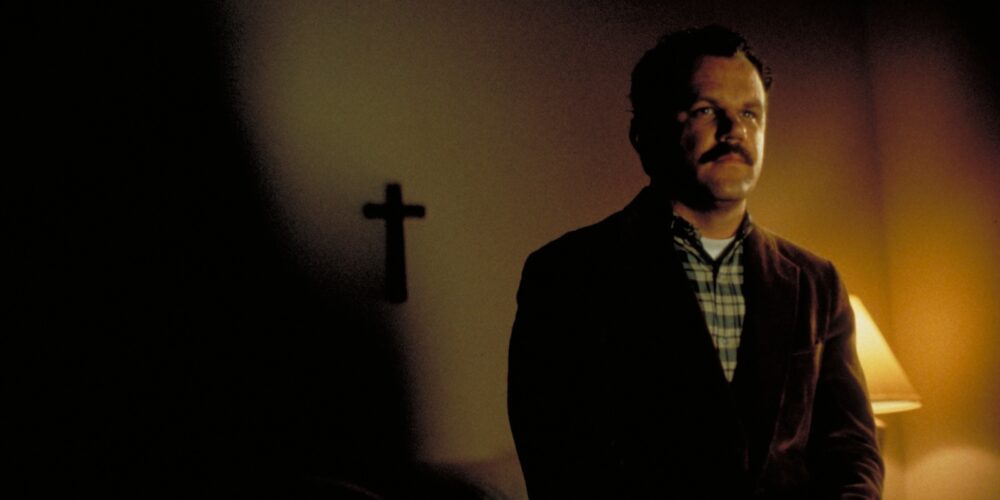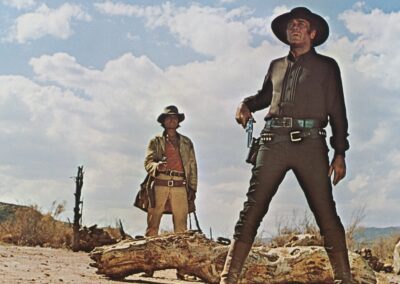Paul Thomas Anderson is, arguably, the finest American film director, currently working. Yes, he’s had his misfires (Inherent Vice and The Master most definitely have their longeurs) and he regularly fluffs his endings (the otherwise perfect Licorice Pizza literally ends with one shot too many) but, when you consider his successes (Boogie Nights, There Will Be Blood, Punch Drunk Love and, of course the epic Magnolia, which is screening at the UPP in December as part of its 1999 season) it’s glaringly obvious that, when he’s on form, Anderson is capable of making exceptionally thought-provoking, brilliantly acted and highly original films and, in this day and age, that’s no mean feat.
As a teacher of Film Studies, I am often asked to name my “favourite” film; something of an impossible task. Whenever the subject comes up, my response is to usually list the directors I admire the most (Hitchcock, Welles, Malick, Altman et al) and to reflect on the fact that, in order to really judge a film’s merits, we need to look at it from the perspective of time. In other words, a film I saw last week may well have been good, bad or indifferent, but the big question is: how well will this hold up 20 or so years from now? Right now, I have a subjective response. In the future I will be more objective.
Stanley Kubrick (whose last film Eyes Wide Shut is also playing in the UPP 1999 season) is certainly a name which should feature in any list of great directors, but it’s well worth remembering that practically every film he made was met with some indifference, on first release. Like many others, I remember initially thinking in 1980 that The Shining was not as good as the book; that Full Metal Jacket was no Apocalypse Now and that Eyes Wide Shut was just plain silly – it will be interesting to see whether this has “matured.” Nowadays, I certainly rate the first two very highly – it’s almost like we “catch up” with his films years later. They keep getting better and better, as time goes by (to cite Dooley Wilson in Casablanca –another movie that gains stature over the years).
Which is all a long way of saying that I am pretty certain, 25 years after it was first released, that Magnolia is one of the great cinematic achievements of the last century. I loved it when I first saw it and still do. From its stunningly original opening; to its relentless pacing; from its brilliant use of Aimee Mann (and Supertramp) songs; to its spot on casting – everything about this three hour plus journey into family, time passing, love, pain, regret and everything in between, is nigh on perfect.

And, yes, this is Tom Cruise’s greatest performance – but you will also mourn when you see the late, great Philip Seymour Hoffman, Philip Baker Hall and Jason Robards back in action; swoon at Julianne Moore; fall in love with John C Reilly and William H Macey (Fargo’s hapless car salesman) and wonder why we don’t see much of Melora Waters on the big screen any more (her small screen credits, however, include Big Love, NCIS and Law and Order: Special Victims Unit).
Not only is the casting brilliant, but this is a film which looks amazing. Cinematographer Robert Elswit, who went onto shoot Punch Drunk Love, There Will Be Blood and Inherent Vice for Anderson as well as (amongst others) Mission Impossible: Ghost Protocol; Dan Gilroy’s seriously good media satire Nightcrawler with a never better Jake Gyllenhaal and, more recently, Bob Marley: One Love, is at the top of his game here – constantly coming up with visual surprises (the ambulance crash is a particular highlight).
Before he wrote Taxi Driver and went onto become one of the most interesting contemporary film directors, Paul Schrader (whose career includes the recent three-film triple whammy First Reformed, The Card Counter and The Master Gardener – all superb films, as well as American Gigolo, Cat People and Affliction) made a name for himself in the early 1970s as a film critic, when he published a book on the Japanese film maker Ozu, Robert Bresson and Theodore Dryer, which was entitled ‘Transcendental Style in Film’.
The basic premise of his argument is that it is possible for some films to be so “great” that experiencing them can almost have a religious quality – as if you are having an epiphany when you watch them (Schrader’s strict Calvinist upbringing obviously influenced his thinking). I think there’s some truth in this.

Movies experienced in the cinema, by their very nature, can be emotionally over whelming and intense. Occasionally, something can happen in a great film which just makes perfect sense and lifts you beyond the everyday; beyond the mediocre and the dreary; beyond the mundane and into a world of truth and beauty – a world which sheds light upon the darkness (which surely is one of art’s many functions).
When the cast break the fourth wall and actually join in singing Mann’s deeply affecting Wise Up, about two hours into Magnolia, you know that you are watching something transcendent.
And when that Biblical ending finally drops from the skies, you are so overwhelmed by Anderson’s audaciousness that you want to burst into applause, sing Hallelujah and proclaim him as some sort of visionary prophet.
I hope that you enjoy Magnolia as much as I do. As a confirmed atheist, it’s about as close as I’ve ever come to a religious experience.
To quote the trailer, “Things fall down. People look up. And when it rains, it pours.” And you can’t say fairer than that. Can you?
Dr Andrew C Webber is a Film teacher and examiner with over 38 years’ experience. He currently contributes to both the Cinema of the 70s and 80s magazines (available on Amazon); cassette gazette fanzine (available from cassette pirate on e-bay) and the Low Noise music podcast available on Spotify and Apple podcasts.


